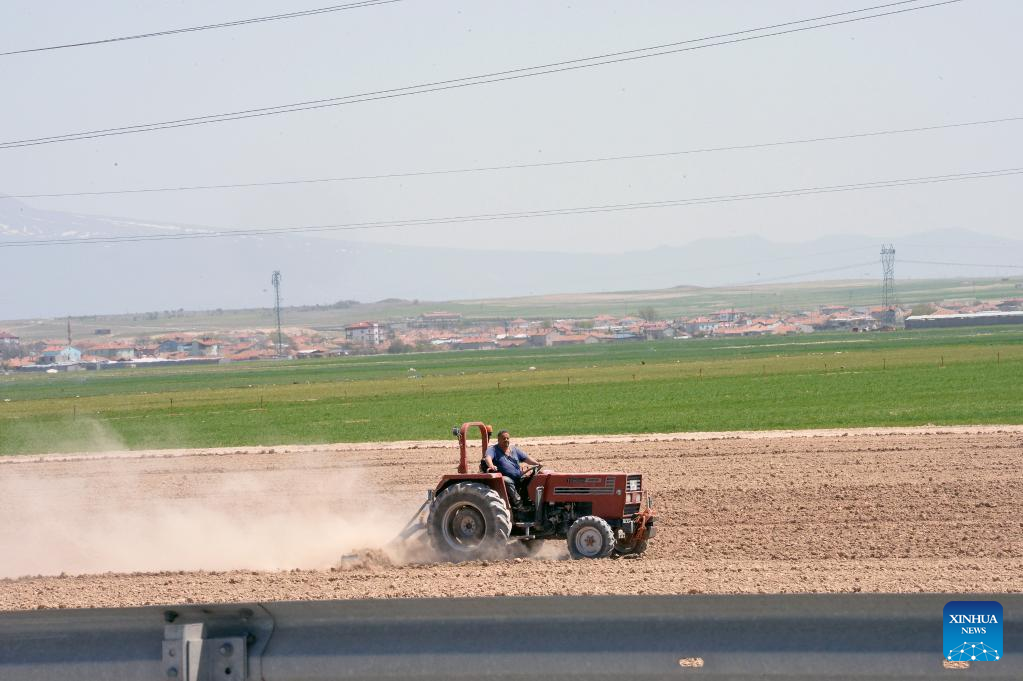
A farmer drives a tractor in a field in Ankara, Turkey, May 11, 2022. (Photo by Mustafa Kaya/Xinhua)
by Burak Akinci
ESKISEHIR, Turkey, May 15 (Xinhua) -- Veli Gelen has been farming the fertile cropland of the northwestern Turkish province of Eskisehir for decades. But now, with rampant inflation and skyrocketing costs, his livelihood is facing momentous hardships.
"Farmers are in poor shape, and things got worse," Gelen told Xinhua in the small village of Yesilyaka.
Son of a farmer, Gelen grows modest amounts of wheat, barley and rye, and owns a handful of cows.
"Last year, diesel price was 7 liras (about 0.45 U.S. dollars), now it's 22 liras. Fertilizer prices tripled, the price of fodder tripled, and liquid fertilizers went up by 400 percent. Soaring costs have finished us," the veteran farmer lamented.
"Our income also dropped drastically, we were unable to use fertilizers, so this year the harvest is set to drop," Gelen said.
Such grievances are rife among farmers across Turkey, as the local currency has fallen steadily since 2018, amplifying the cost of imports and fueling annual inflation to 70 percent, a 20-year high.
Gelen said he doesn't see the light at the end of the tunnel, and is calling for urgent measures to support farmers.
The commodity shocks of the COVID-19 pandemic and the Russia-Ukraine conflict have aggravated the woes of the Turkish economy, which relies heavily on imports, especially in terms of energy.
Turkey's foodstuff imports rose by 21 percent in 2021 compared to the previous year, reaching 17.2 billion dollars, according to the Federation of Food and Drink Associations.
Russia and Ukraine, whose vast agricultural regions contribute greatly to the world breadbasket, account for a big share of the globe's exports of wheat, vegetable oil, and corn.
The price of fertilizers has gone up by over 300 percent in a year, and the price of diesel -- a crucial material used by farmers for tractors -- rose by 32 percent in March alone, Turkey's Agricultural Chambers Union said in April.
Meanwhile, annual producer inflation hit 121 percent in April, while price increases concerning food products are nearing 90 percent annually.
According to official data, because of economic reasons, over the last decade, the number of farmers in Turkey has plummeted by almost half, from 1.1 million in 2010 to 568,000 in 2020.
Meanwhile, the country's agricultural land decreased by more than 18 percent between 2002 and 2020.
"While Turkey's population is on the increase, its agricultural production is decreasing, this is a contradiction, and pushes the country to import goods, but for how long?" Gelen asked.
According to Ali Ekber Yildirim, a journalist and author specializing in agriculture, farmers' problems have snowballed in the past decade as the country has become dependent on imports, despite fertile lands.
"Because of the Ukrainian crisis, Turkey's wheat import bill will be doubled in 2022," Yildirim said.
While farmers yearned for support in terms of subsidies to spur production, authorities said that Turkey will not suffer from grain shortage and new incentives are planned for the agriculture sector to alleviate concerns.
The country's Ministry of Agriculture and Forestry said in March that with good hopes for grain harvest this year, food supply disruptions are not expected. ■
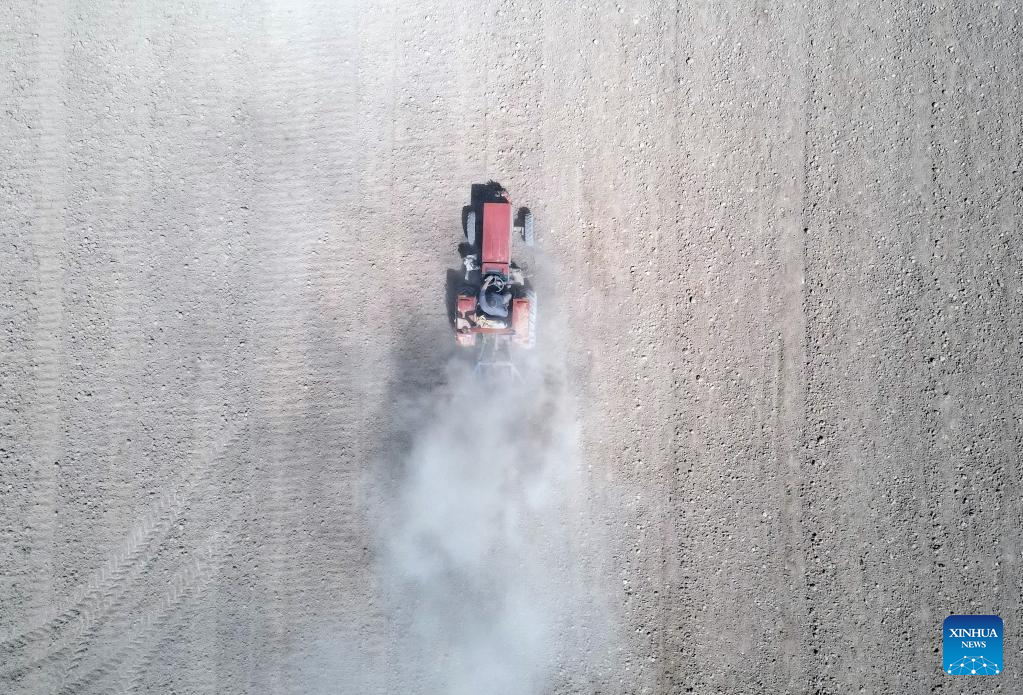
Aerial photo taken on May 11, 2022 shows a farmer driving a tractor in a field in Ankara, Turkey.(Photo by Mustafa Kaya/Xinhua)
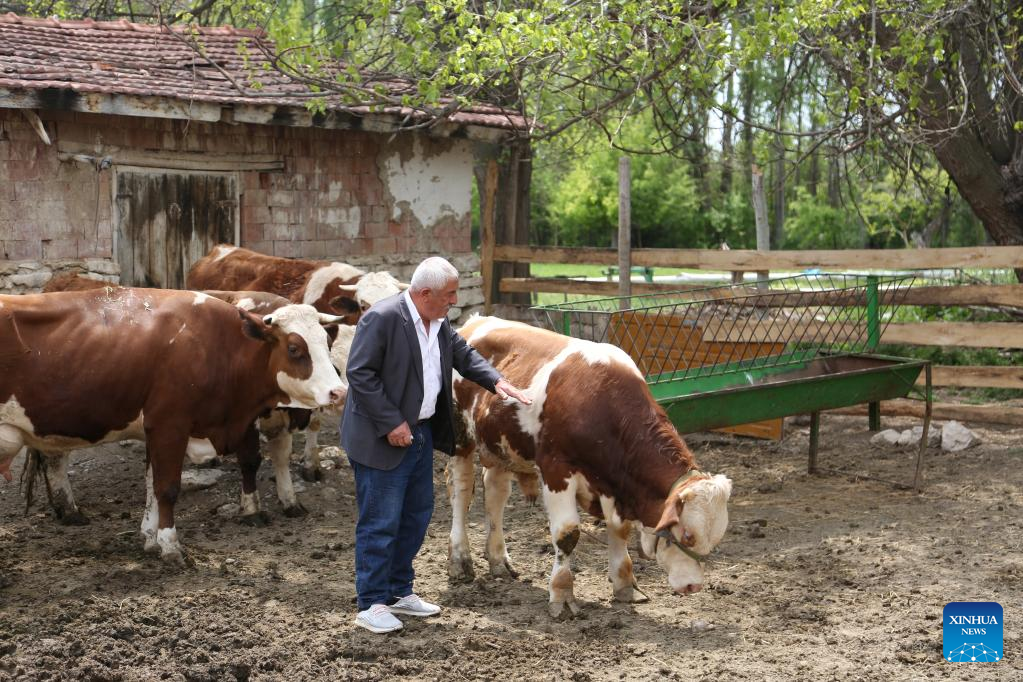
A farmer is seen with his cows in Eskisehir, Turkey, May 11, 2022. (Photo by Li Zhenbei/Xinhua)
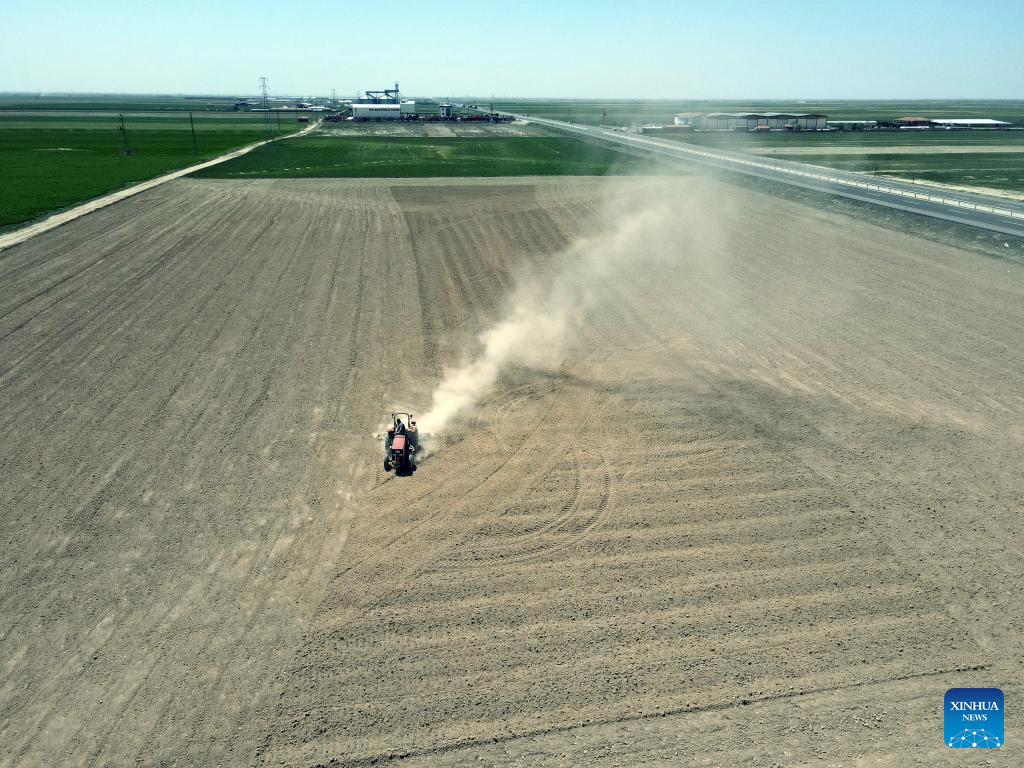
Aerial photo taken on May 11, 2022 shows a farmer driving a tractor in a field in Ankara, Turkey. (Photo by Mustafa Kaya/Xinhua)
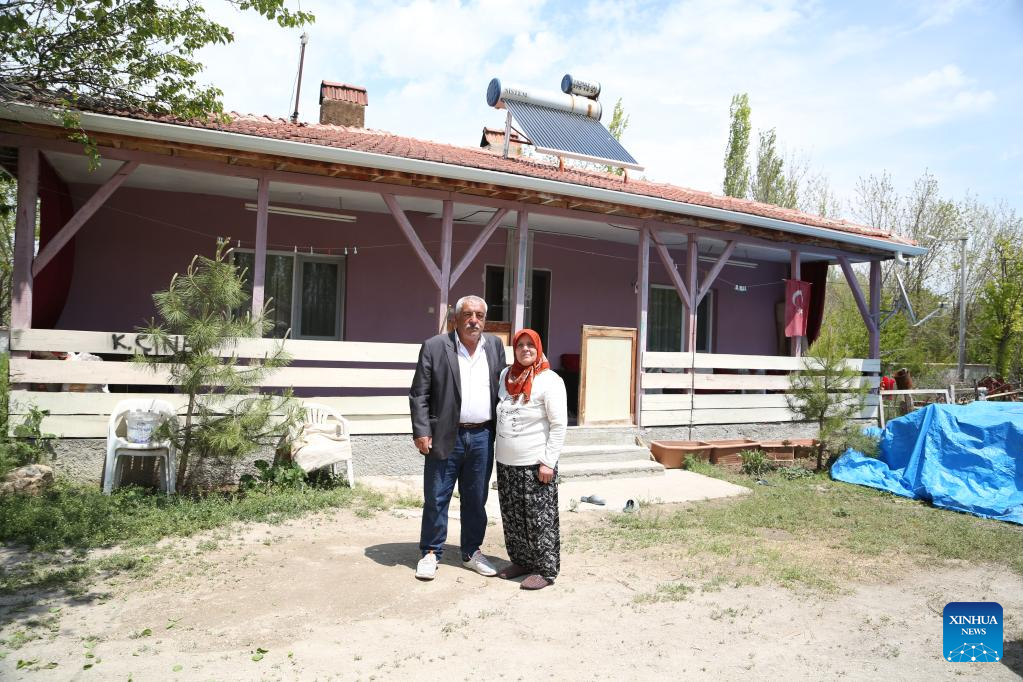
A farmer couple are seen in their farm in Eskisehir, Turkey, May 11, 2022. (Photo by Li Zhenbei/Xinhua)
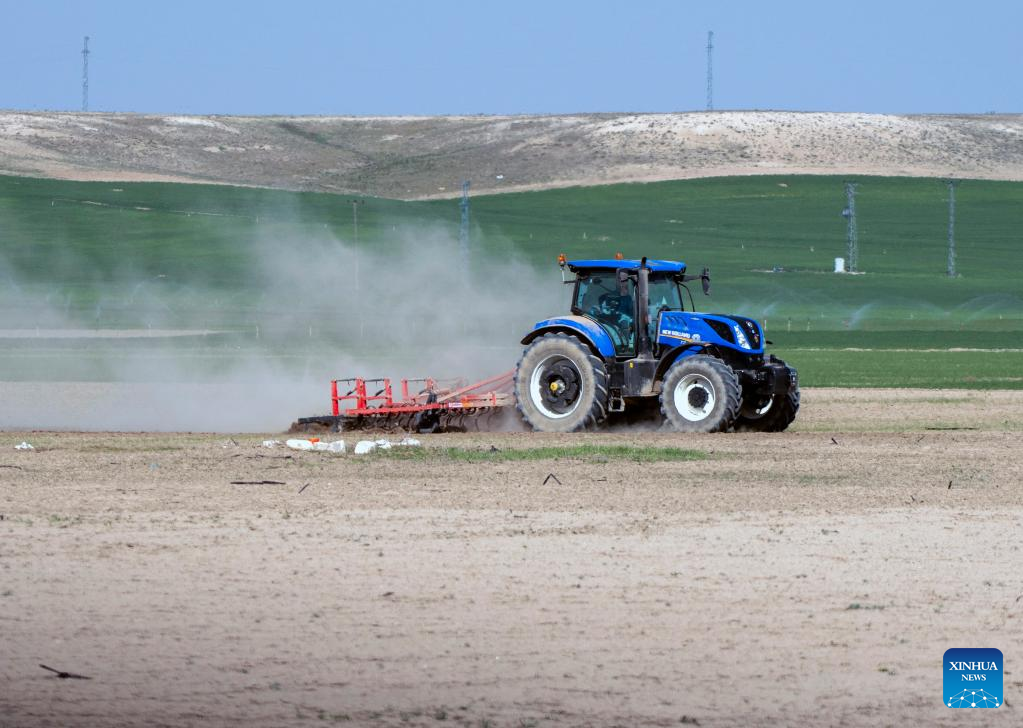
A farmer drives a tractor in a field in Ankara, Turkey, May 11, 2022. (Photo by Mustafa Kaya/Xinhua)



